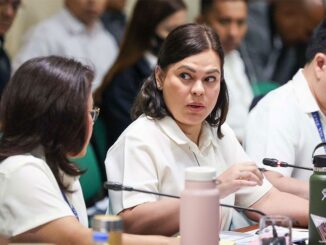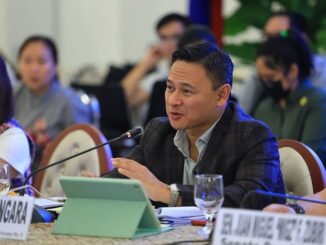
MANILA, Philippines — The Department of Education is set to roll out financial literacy programs aimed at helping students and out-of-school youth manage their finances and avoid investment scams.
The initiative follows DepEd’s new partnership with the Securities and Exchange Commission (SEC) to educate Filipinos about money management and investment principles.
DepEd and the SEC will collaborate in creating and distributing information and education materials on investing, financial literacy, investor protection, and investment scams, according to the memorandum of agreement signed on Wednesday, October 9.
While the agreement does not specify how the program will be implemented, it said that DepEd and SEC will work on online information materials and “web-based training programs.”
Besides students and out-of-school youth, the program will also target teachers and other DepEd personnel — the biggest government workforce with over a million members.
Dubious entities have long tried to rope in teachers into securing bank loans to join unregistered and potentially fraudulent investment schemes, most of which promise quick returns in exchange for money sunk into various products.
What went before. The problem prompted then-Education secretary Leonor Briones in 2020 to issue a public advisory warning public teachers against joining such investment programs.
The 2020 DepEd advisory noted that these schemes lure public school teachers with promises of financial stability, offering seminars on financial literacy while dangling the prospect of a debt-free life, double net pay, cars, vacations and hefty savings.
The new DepEd partnership with SEC will also cover “activities that will help the SEC in flagging investment scams by sharing information about suspicious business activities, monitoring and reporting investment-taking activities, and the like, within the DeEd’s jurisdiction.”
In 2021, DepEd ordered schools to expand and integrate financial literacy concepts into their lessons without actually changing the content of the curriculum. It doing so, it aimed to teach students “the value of money and resources, how they are acquired, how to plan and manage assets, and how to save and share.”
A 2019 Bangko Sentral ng Pilipinas survey found only 41% of Filipinos can answer one of three financial literacy questions correctly, while just 8% can answer three.





Be the first to comment